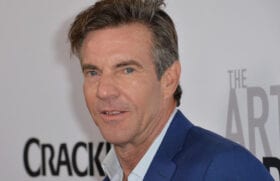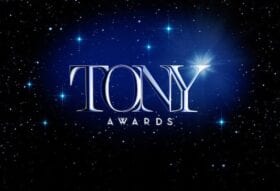ESPN Podcasts scored a record in September, generating 39.3 million IAB compliant downloads, easily topping its previous record of 36.0 million set in May of this year, and marking a rise of 50% over September 2017. The company also reports that ESPN Podcasts drew a total of 5.47 million US Unique Audience, as measured by Podtrac, an increase of 36% vs. September 2017, with Fantasy Focus Football, scoring its best month in its 10-year history, with just shy of 4.6 million total IAB compliant downloads, averaging nearly 162,000 IAB compliant downloads per episode. Topping the charts was The Dan LeBatard Show with 8.2 million downloads.
Breaking new ground in the podcast landscape is ESPN Films’ 30 for 30 Podcasts, which returned last week for a fourth season with five all-new audio documentaries, beginning with “Juiced,” about Jose Canseco’s memoir is live now, and the most recent episode being “All In: Sparking the Poker Boom,” examining the 2003 World Series of Poker. Cynopsis asked Jody Avirgan, podcast host and producer who oversees ESPN’s 30 for 30 Podcasts, about the format and series’ impact on sports media.
Avirgan on the role of podcasts on media: I see ESPN as doing three kinds of “digital audio” really well — there’s the radio shows that get posted into podcasts, there’s the original talk shows, and then there’s storytelling. I’m most obsessed with storytelling, and see that as the biggest place to find new audiences and do ambitious journalism. One thing that I think about a lot is how to make stories that a core sports audience will like, but also one that will break out into the larger world. You hear this about 30 for 30 all the time: “I don’t like sports, but I love 30 for 30.” That’s music to my ears. I also think it’s good business to be there for those listeners.
On how strategy has evolving: Overall, we’ve just seen podcast listening explode. So we’re trying to develop new shows, and build a bit of a network effect where we can become a home for listeners who just want engaging, smart, fun audio. We’ve gotten much better about marketing our new shows and stories as well, making sure that our radio and TV and web audiences know about new podcasts.
On how the 30 for 30 Podcasts fit into that strategy: I see 30 for 30 as the flagship storytelling podcast at ESPN (and I’d like to think, in general). But I also see it as a really cool extension of the 30 for 30 brand. It’s not a chance for us to tell more stories in new ways, and I want to make sure that every fan of the 30 for 30 video series is also listening to the podcast.
On the 30 for 30 series: Podcasting is intimate, it’s emotional, so it’s a great place to tell stories with built in stakes and consequences. Luckily, sports stories have a lot of those! We also get to tell some stories in audio that we wouldn’t be able to tell in video. We can take you to places where there may not have been cameras, we can go back in time, we can tell more obscure stories. It’s just another gear for us to have.
On favorite moments: Truly my favorite thing about 30 for 30 is the range. I love that we can tell a story about Trayvon Martin, then tell a story about a poker heist, then do a multi-part series about Bikram Yoga. It’s that diversity of stories and creative approach that I value the most. I want to do serious journalism, but I also talk a lot about how we need to do “romps” — stories that are just fun to listen to as well. We’ll keep trying to do it all.




